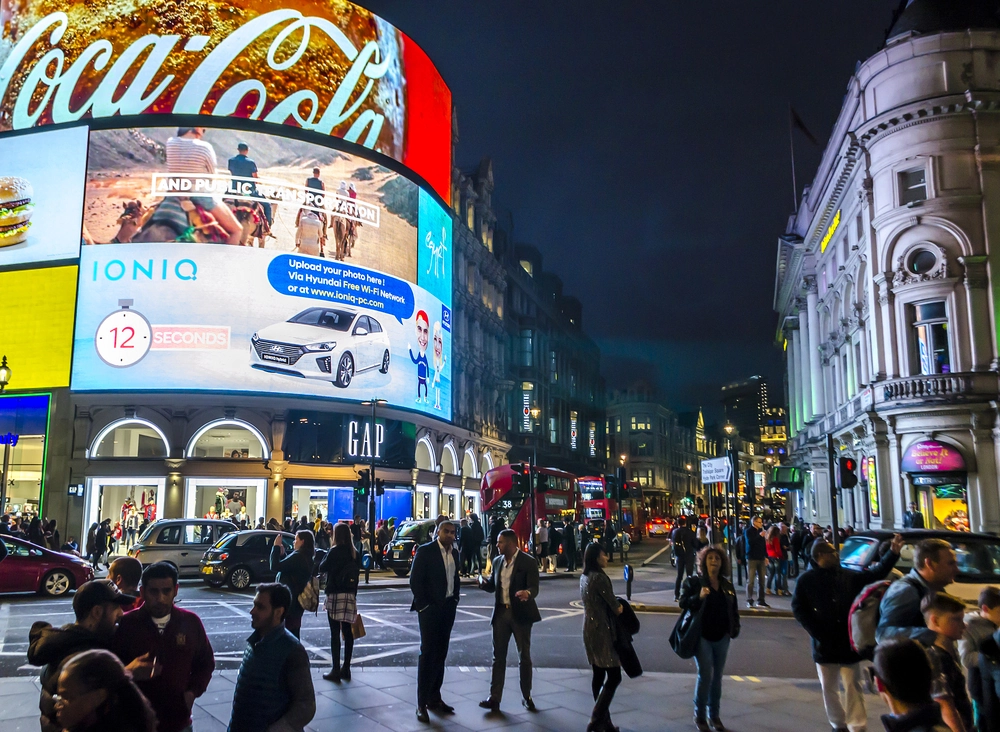
Marketing Matters: Review of December 2023

By Hannah Duke, Jake Christophersen
19 Jan 2024 | 7 minute read
Firstly, a very happy New Year to our readers and welcome to this month's edition of our Marketing Matters newsletter, where we look at advertising and marketing (A&M) trends in the Retail and Consumer sector.
We will be looking at:
- The ASA's December rulings and how they might be relevant to your A&M departments.
- The main ASA updates in the lead up to Christmas.
- What has been happening at the CMA.
ASA rulings – key takeaways for your A&M departments
December has come and gone and 2024 is here. The ASA handed down 25 rulings in December, and we've picked out some of the key rulings we think A&M departments should be aware of.
Misleading claims
You guessed it: misleading claims are back again, way ahead of any other type of 'no-no' marketing claim, with 18 rulings finding that the advertisements in question were likely to mislead consumers.
A car manufacturer was found to be in breach of the CAP Code in that it had misled consumers by exaggerating the mileage range of one of its electric vehicles. The complainant had tried to achieve the stated range, but didn't succeed. Essentially, "various real-world factors, such as speed, style of driving, weather and route conditions, and the age and condition of the battery might affect the range" which the ASA considered to be material information, considering that it would often impact the actual achievable mileage range of the vehicle
An ad for a telecoms company stated that consumers would get "the fastest WiFi Guarantee of any major provider", which the ASA ultimately found to be in breach of the CAP Code, given that it could not be properly substantiated. This was based on the fact that, in the ASA's view, consumers would understand that the company could provide faster wi-fi speeds than other major providers, which is not the case. The company argued that their wi-fi guarantees concerned ensuring fast minimum speeds; however, even so, the claim was found to be a misleading one.
Irresponsible advertising
Seven rulings found claims to be socially irresponsible, slightly down from the previous month.
A back-to-school campaign run by a cosmetic brand was found to play on young girls' insecurities about their appearance when advertising its make-up products and was therefore in breach of the CAP Code. The ad included the wording "slay this back to school season", which in the view of the ASA "implied that girls or young women were more likely to succeed or do well when they went back to school if they wore make-up, in this case a concealing and contouring product." The ASA also questioned whether the ad had been properly targeted and the risks of it reaching girls under the age of 18. Ultimately, it was found not to be socially responsible.
A couple of radio ads for a power tool supplier had a voice-over that appeared to contain references to expletives. The ASA considered these expletives would likely cause serious offence to adult audiences and were therefore unsuitable for children (who could listen to the radio). The ads explained that the company 'swears by its reliability' and if the listener did not believe them, they were invited to "go [bleep] and [bleep]" themselves. The voice-over then questioned who was playing around with the 'bleep' machine, followed by "[bleep] idiot." Even though the company argued that certain expletives were not alluded to in the ads, the ASA found that an audience would expect the bleeps to cover a stronger and potentially aggressive expletive (and its derivatives). Therefore, the ad was in breach of the Broadcast Code.
Environmental claims
Finally, the number of environmental claims that fell foul of marketing rules increased fairly significantly compared to previous months in December, with the ASA ruling that six of the advertisements considered did not hold up.
A clothing retailer, known especially for its suits and shirts, got in trouble with an ad stating that "[It is] proud to be a Carbon Neutral business.” The company had based its claim on a report by a sustainability consultancy, as well as sustainability guidelines published by the British Standards Institution. So, what did the ASA find against it? Ultimately, it came down to the claim being unqualified – i.e. the ad contained no explanation for consumers as to the basis of the claim – and therefore it arguably omitted material information that consumers would need to know in order to make their own assessment of whether or not the company was indeed carbon neutral. On that basis, the ASA considered that the ad was likely to mislead consumers and found the ad in breach of the CAP Code.
Another ruling that dealt with unqualified green claims concerned a craft beer company whose Instagram ad held them out to be a 'carbon negative' company. The ad stated: "BEER FOR YOUR GRANDCHILDREN" and included wording in a childlike, handwritten form saying: "drink it for me" and showed a childlike drawing of an earth on fire. Crucially, the ad told viewers to read more about their climate efforts by clicking a link in their 'bio'. When challenged, they explained this was standard practice, given the social platform did not allow for the inclusion of links. Alas, the ASA considered that Instagram's 2,200-character limit was sufficient for the company to qualify its claim and that referring customers to a link on a separate webpage would not be sufficient to ensure CAP Code compliance.
Takeaways
The key takeaways from the ASA rulings this month are:
- Make sure to qualify your green claims – It will not be sufficient to direct your customers to a separate webpage or make broad green claims without backing them up within the ad. Given that the ASA considered social platform character limits in the beer company matter above, it is unknown whether platforms with far lower character limits might have a lower threshold in terms of compliance. However, it's probably best to err on the side of caution until this has been properly addressed.
- Go easy on the swearing – Watch out for swear words or possible references to them. If you do try to be inventive with your expletives, e.g. by concealing them, make sure that consumers do not interpret them as expletives and understand that they refer to something different.
- Be thoughtful – Consider whether your ads are playing on anyone's insecurities or other vulnerabilities. If they do, or they might have the effect of doing so, you should probably be giving them a second thought.
Top ASA stories last month
It's never too late to learn
The ASA has partnered with Instagram and five content creators to release a series of new videos about advertising rules and the obligations of UK advertisers to follow them. The aim is to strengthen advertisers' knowledge of what the rules are, so breaches caused by e.g. misleading claims and unclear pricing can be avoided. Social media has come across as a bit of a Wild West over the past months – as discussed in previous Marketing Matters editions, for example, the non-recognition of marketing communications and advertising of vapes has fallen foul of the ASA on a few occasions. This partnership is aimed to also extend to influencers who may inadvertently breach the rules.
No offence, but…
In the run-up to Christmas, the ASA highlighted the importance of taking care not to be offensive when creating ads. It also set out some guidance of what it will look for when assessing whether an ad is likely to cause serious or widespread offence:
"The ASA takes into account different factors such as where the ad appeared, the product being promoted and prevailing standards in society. It is important to note what some consumers may find humorous, others may find deeply offensive."
The ASA tried to distinguish what might cause offend a group rather than it being serious and widespread. In doing so, it drew on examples from advertising by a fashion retailer and an ice cream company, whose Christmas adverts were a light-hearted take on the Nativity story, as opposed to mocking the Christian faith. Nevertheless, advertising departments should take care not to over-step, as a betting company did when it pictured Jesus and his apostles in a casino playing roulette or a café chain did when they sexualised snowmen and reindeer in their ad for their Christmas menu.
CMA activity in December
The grass is not always greener
The CMA continues to monitor green claims being made by advertisers and stated in December that Unilever may be overstating the 'greenness' of some of their products. This comes amid an investigation by the watchdog into Dove soap and Hellmann's mayonnaise. The CMA is looking into whether the green claims being made by the FMCG giant could be misleading to consumers, something Unilever considers 'disappointing', stating that it refutes any such allegations.
This investigation is another example of an area where marketing departments need to take care when making green claims. The key will be to consider whether they in any way mislead consumers, whether that be by exaggerating the products' impact on the environment or by simply making too broad or vague environmental statements. This is particularly important now, at a time when many are trying to play their part in a greener future.











